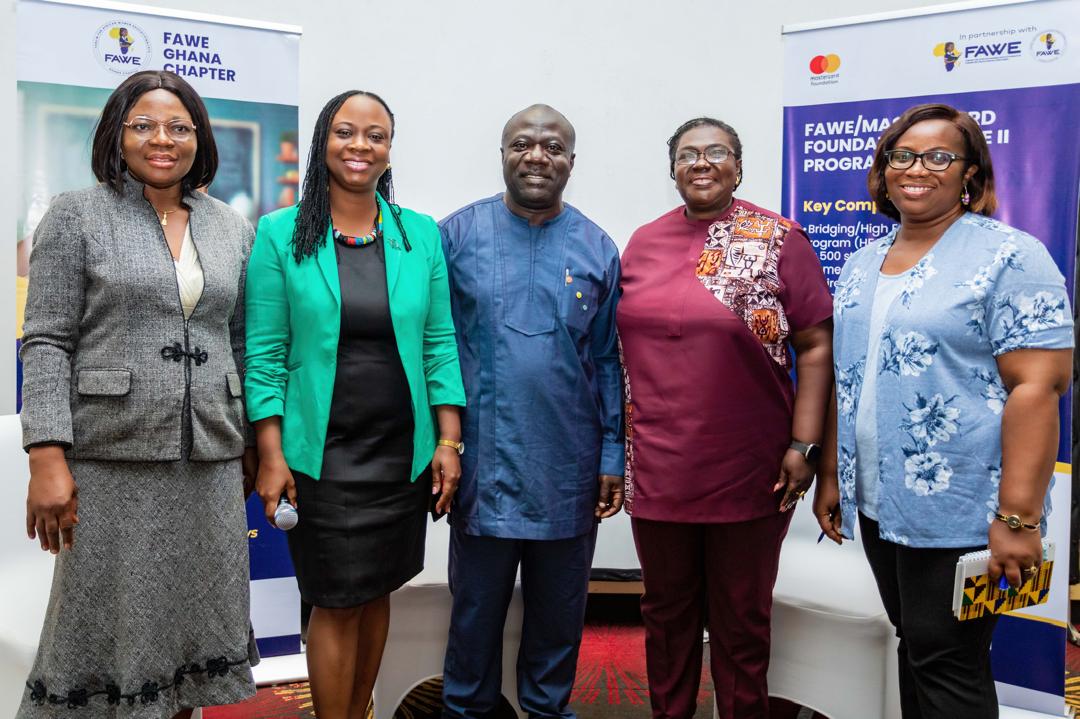
The Chairperson of the Vice Chancellors of Technical Universities-Ghana (VCTU-G), Rev. Prof. John Frank Eshun, has emphasised the transformative role of bridging programmes in preparing Ghanaian youth for success in STEM and technical fields. Speaking at a high-level panel during the launch of the FAWE/Mastercard Foundation Phase II Programme at Alisa Hotel in Accra on Wednesday, 16 April 2025, Rev. Prof. Eshun joined leading voices from academia—including Prof. Cynthia Boye of the University of Energy and Natural Resources, Ms. Araba Botchway of Ashesi University, and Prof. Georgina Oduro of the University of Cape Coast—to examine how institutions can better equip students for the demands of a changing world.

Also present at the programme were the following Vice-Chancellors: Sir Prof. Elias N. K. Sowley of the Dr. Hilla Liman University of Technology, Prof. Kwadwo Adinkrah-Appiah of the Sunyani Technical University, Prof. Ben Quarshie Honyenuga of the Ho Technical University, Prof. Gabriel Dwomoh of the Kumasi Technical University, Prof. John Owusu of the Koforidua Technical University, Prof. Bashiru Imoro Ibn Saeed of the Tamale Technical University, and Prof. Kwaku Ayim A. Boakye of the Cape Coast Technical University. Also present was J.M. Oti-Asirifi, Executive Secretary of the Vice Chancellors of Technical Universities-Ghana (VCTU-G) and Mr. Richard Atia, Ag. Registrar of Bolgatanga Technical University.

In his remarks, Rev. Prof. Eshun offered insights into the variety of bridging programmes currently offered by Ghana’s Technical Universities and how these programmes are being implemented to serve a diverse student population. However, he acknowledged that while the bridging programmes are well-intentioned, they must evolve to match the pace of industrial transformation and respond to the needs of young people more effectively.
He noted that one of the central gaps in current bridging programmes is their limited integration with modern industry requirements. Too often, curricula remain theoretical, failing to reflect the digital and automation-driven environments that students will encounter in both higher education and the workplace. He stressed that Technical Universities are rising to this challenge by reviewing their programmes and exploring new ways to incorporate practical learning, technology-based tools, and entrepreneurial thinking into their bridging initiatives.

In responding to the question of how bridging programmes can address the employment needs of young people, Rev. Prof. Eshun was emphatic that the programmes must go beyond academic remediation—they must serve as launchpads for employability. “Because of this, many Technical Universities are now adding real-life projects, internships, and mentoring to help students understand what is expected at the workplace early on,” Prof. Eshun revealed.

Another crucial point he raised was the need for stronger gender inclusion. Bridging programmes, he said, must be designed to actively attract and support female students in STEM, offering mentoring, leadership training, and a sense of belonging in traditionally male-dominated fields. He cited promising efforts underway in several institutions to close the gender gap through targeted outreach and community engagement.

The Mastercard Foundation’s Phase II Programme, in partnership with FAWE, presents a timely opportunity to support these goals. Through the collective efforts of Technical Universities, policymakers, and development partners, bridging programmes are becoming essential pathways for young people to transition into their chosen career paths, ensuring that every individual has the opportunity to progress towards a productive and fulfilling future.

